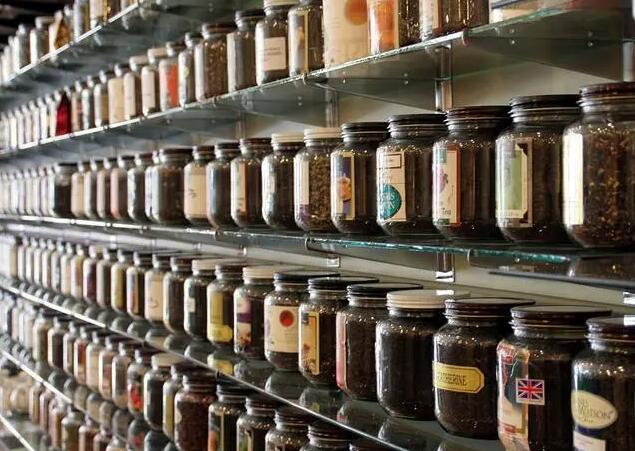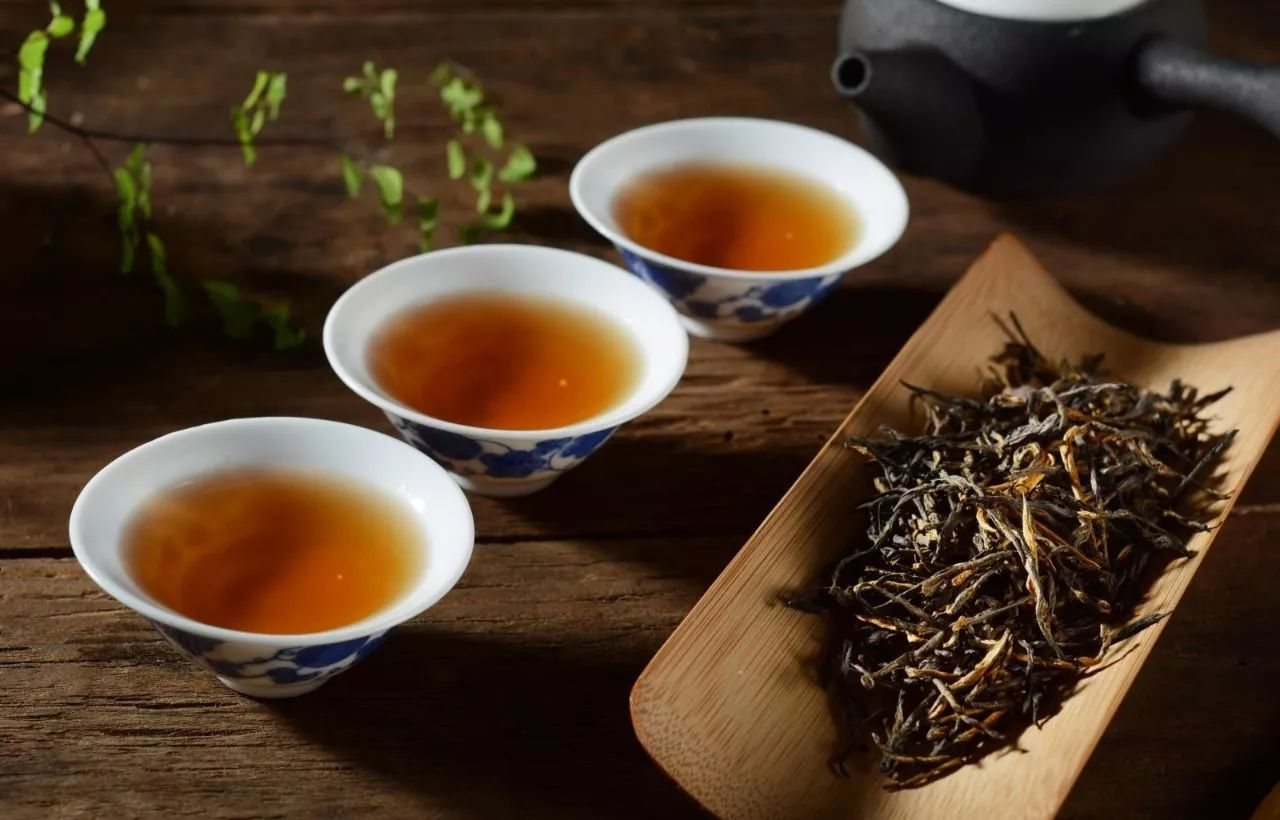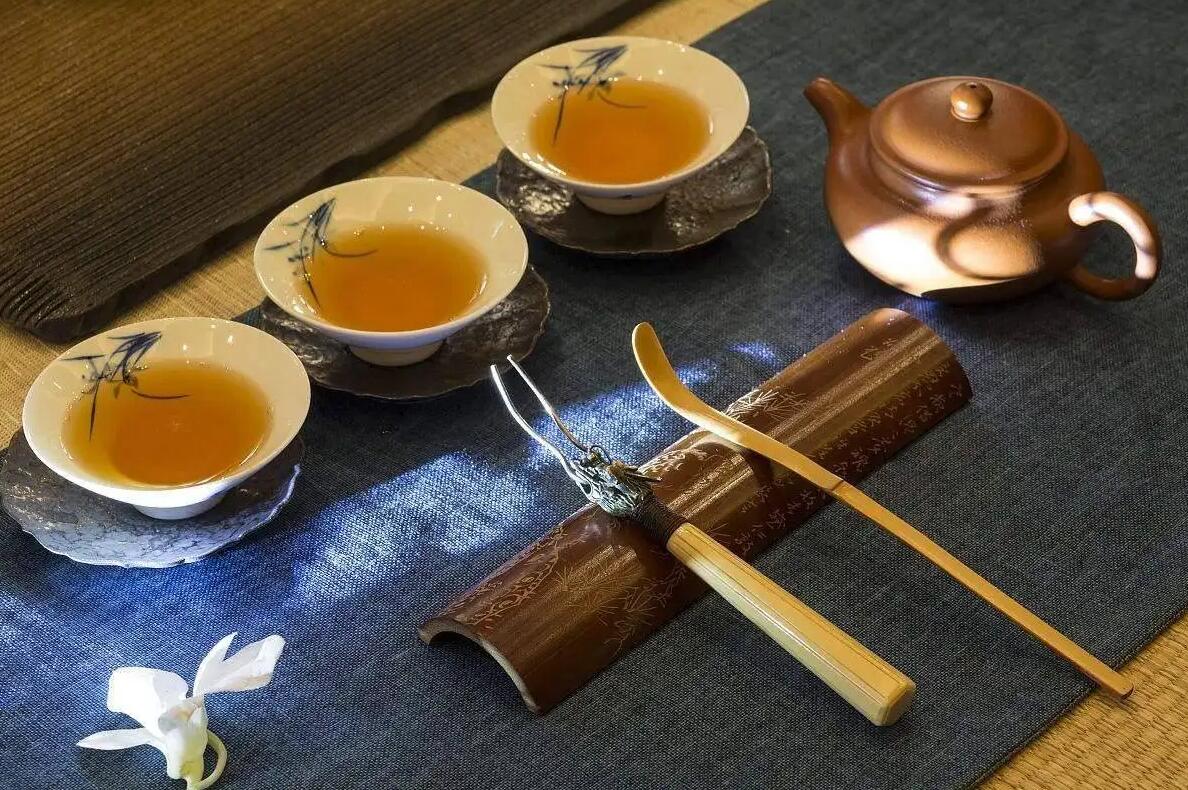Tea has been used in funerals and sacrificial rites for a long time. According to a story in The Book of Tea quoted from Strange Tales- (a collection of strange tales from the pre-Qin period written by Liu Jingshu in the State of Song (420-479) during the Southern Dynasties (420-589) - Chen Wu's widow lived with two sons when she was still young. The family loved sampling tea, and often offered tea as a sacrificial offering to a ghost, for there was an old tomb near their house. The sons wanted to open the tomb, and Chen Wu's widow tried hard to persuade them to give up the idea. At night, she dreamt that the ghost came to thank hen :"I have lived here for more than 300 years. Your two sons wanted to destroy the tomb. Fortunately, you protected me, and often offered me excellent tea. I will pay you a debt of gratitude!" They found 100,000 cash the next day. It might be the earliest record of using tea as a sacrificial offering.
Archaeological discoveries have proved the custom of using tea as a funerary object. For example, a box of tea was found in the famous Tombs of the Han Dynasty at Mawangdui in Changsha City, Hunan Province. The murals in the Tombs of the Liao Dynasty (907-1125) in Xuanhua City, Hebei Province, vividly depict the scene of making and drinking tea. The Chinese regarded death as the end of their lives, and wished to continue their lives after they died. They believed that they could be reborn after death, although they contradicted themselves by also imagining life in the underworld. Therefore, tea became a funerary object so that people could continue drinking in the after-life.
However, there were many far-fetched superstitious stories about popular funeral customs. It was widely believed in China that ghosts in the nether world would compel a person who had just died drink a magic potion to make him forget all the past on earth,or lead him into a maze so that the ghosts could humiliate and enslave him. The Chinese believed that one should be reasonable and sober, and it was unwise to drink the magic potion. Tea could help people keep a clear head. So tea became an important component part of funeral customs in many tea producing areas. According to the Records of Chinese Customs, people in Zhejiang Province and some other areas believed that "besides a silver ingot, the family of the deceased should put a ling made of mannan leaves in his mouth ,and a pack of tea in his hand so that he could not be filled with the magic potion. They would mutter Buddhist scriptures when they laid the coffin: "He was holding mannan leaves, and could eat juicy pink ling when he felt thirsty." This custom was also popular in Anhui Province. It was not only applied to the dead, but also to the living. Necromancy was popular in Jiangsu Province, When a child was ill, a naan held his clothes on a balance, and another man carried a lantern. They echoed each other's utterances, and sprinkled rice and tea while walking so that ghosts could not entice the child's lost soul. The ceremony was called "calling home the lost soul"
Tea was rare in North China, so it was not often used in funerals. However, it was widely used in sacrificial rites to ghosts, spirits or ancestors. It is interesting to note that the Chinese believed that everything had a spirit so there were mountain gods, water gods, town gods, local gods of the land, tree gods, grain gods, flower gods and insect goddesses. The door god and kitchen god were regarded as the most important gods of a family. The door god transformed from a hero in history, blessed and protected peaceful family life. It is said that a sacrificial rite to the kitchen god was held throughout China on the 23rd of the twelfth month of the lunar year in commemoration of the date when he went up to the sky. The Chinese were disrespectful to gods sometimes. For example, people made fun of the kitchen god. On the 23rd of the twelfth month of the lunar year, each family tried to bribe him with Zaotang, which was called tanggua (candied melons) in North China, so that he would not inform secretly on them in heaven In the Liaoyang area of northeast China, every family made a pony with gaoliang (Chinese songhum) shafts so that the kitchen god could ride it to go up to the sky. At night, they offered a cup of tea and a cup of hay. Some people held that the tea was given to the pony, while others insisted that it was prepared for the kitchen god. It was difficult to be the kitchen god, for he had to "give compliments to people when he was in heaven, and when on earth, bless and protect them to live peacefully,"
Although these customs were fatuous and superstitious, they also contained Chinese philosophies of life The Chinese advocated that people should look squarely at life when they were alive, instead of leading a befudddled life as if drunk or in a dream; when they died, they should strive to control their own lives instead of being ordered about by ghosts and gods at will. People used tea in funerals and sacrificial rites because tea could help them keep a clear head.



